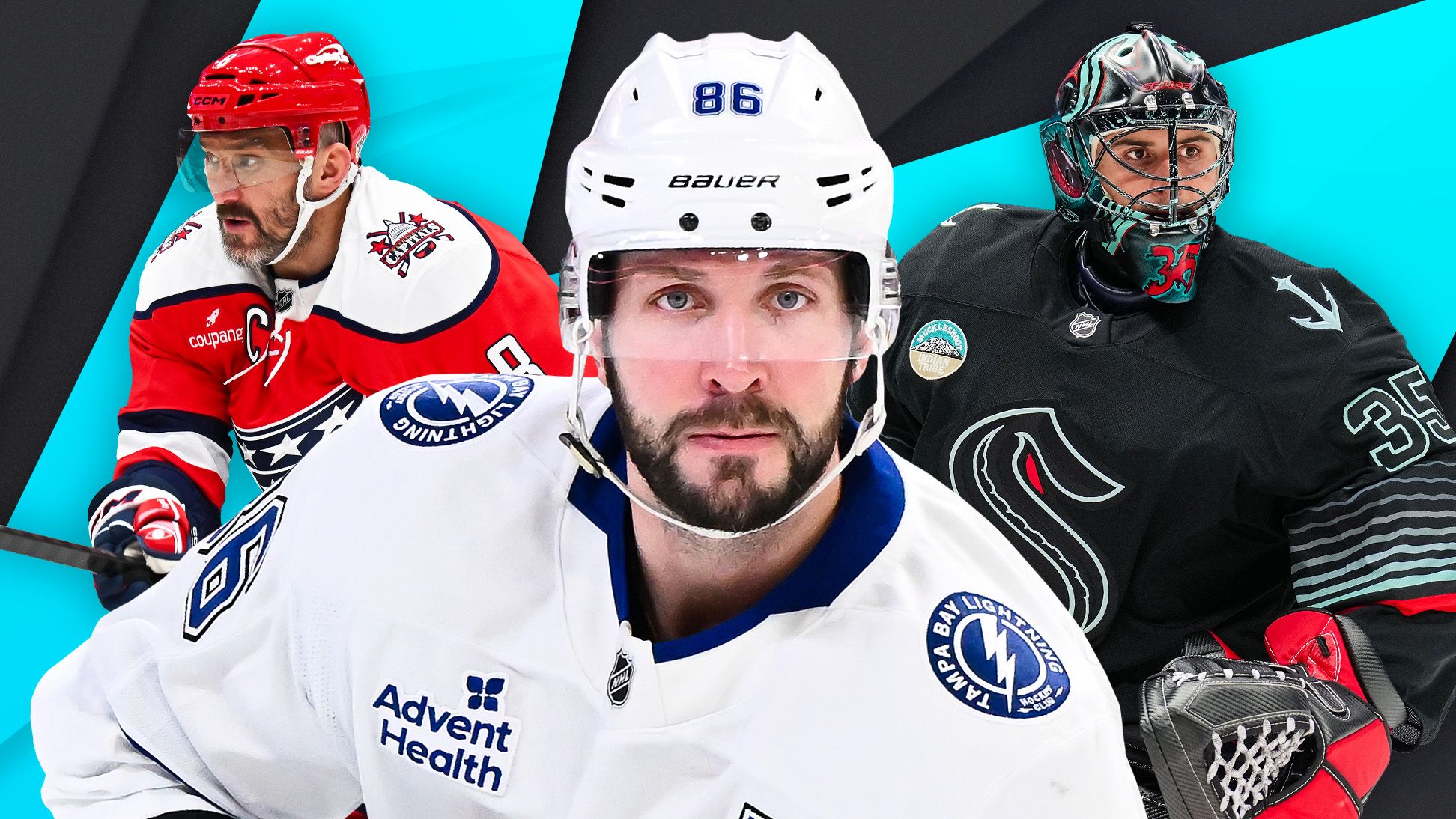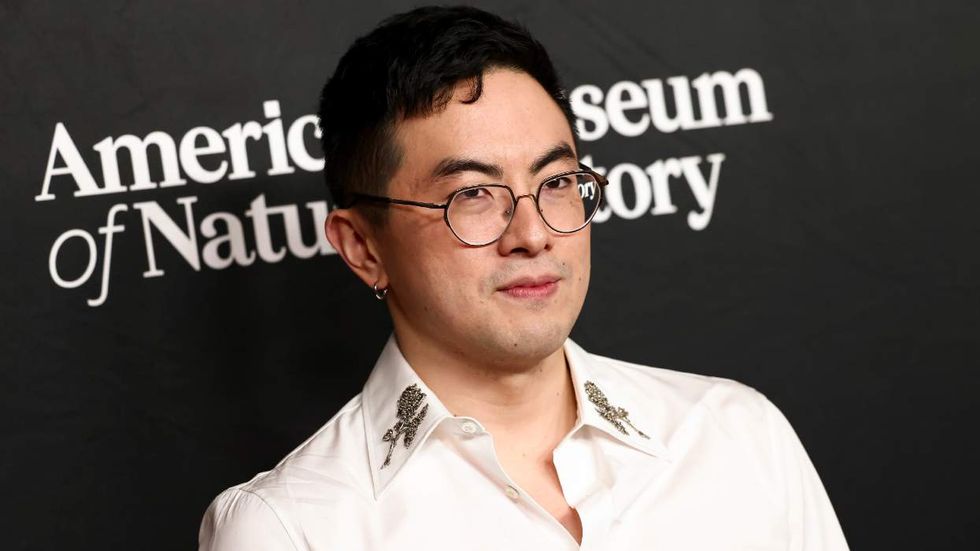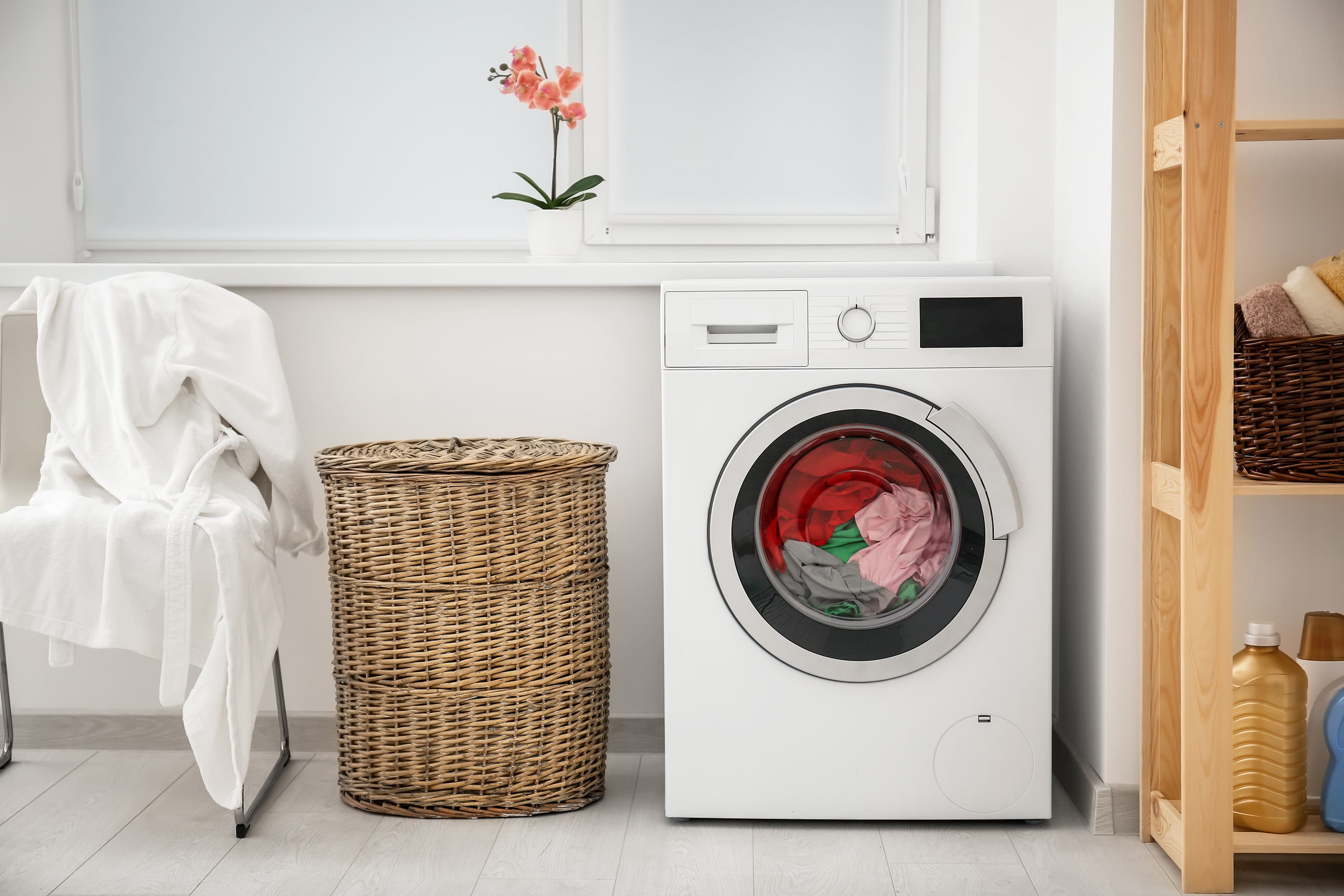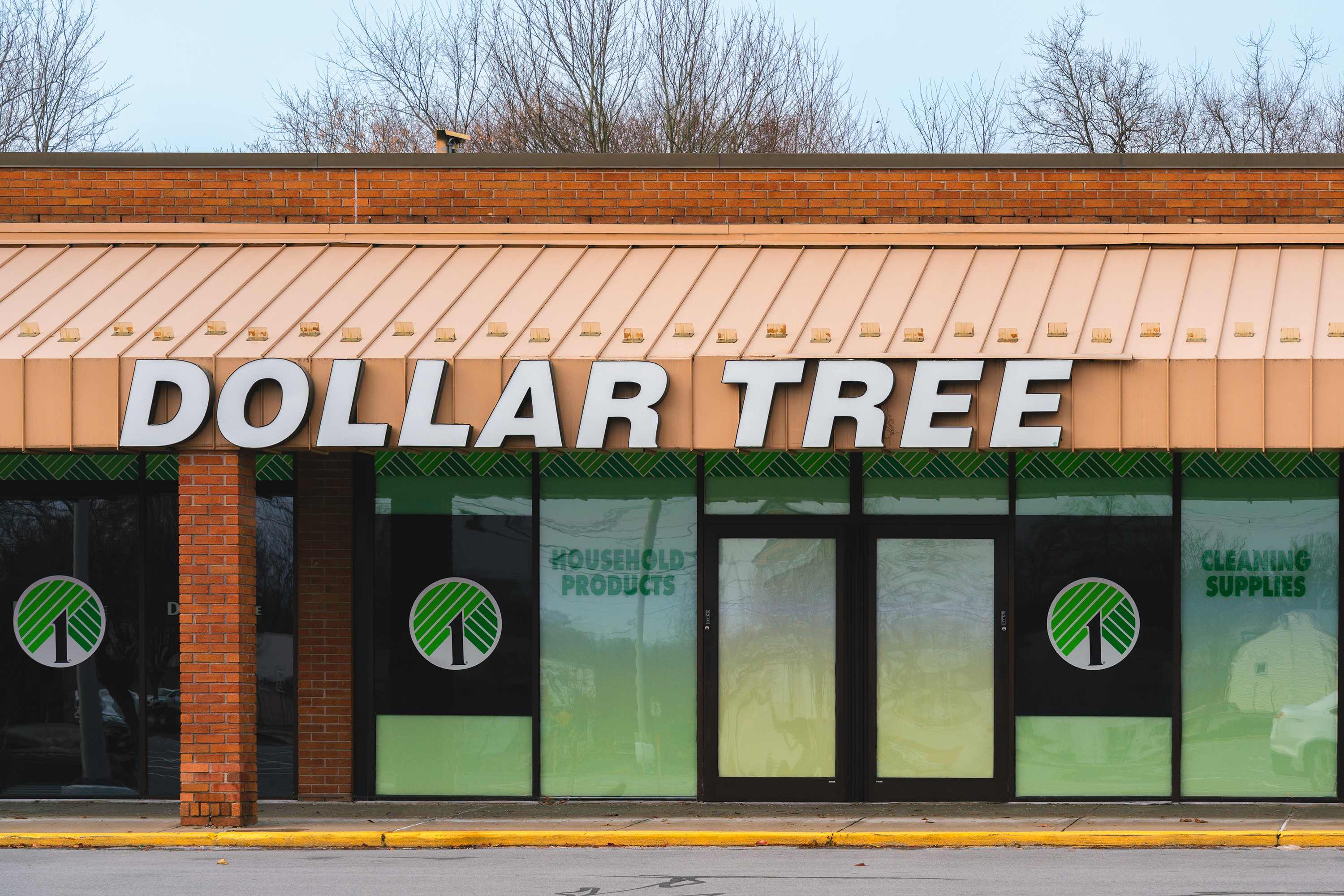0 Comments
0 Shares
3 Views
0 Reviews

Directory
Connect with others, build meaningful relationships, and grow your network on our modern social platform.
-
Please log in to like, share and comment!
-
 WWW.NYTIMES.COMErika Kirk Endorses JD Vance for 2028The early backing of Ms. Kirk, the widow of Charlie Kirk, is notable because she now leads the influential conservative group he founded, Turning Point USA.0 Comments 0 Shares 3 Views 0 Reviews
WWW.NYTIMES.COMErika Kirk Endorses JD Vance for 2028The early backing of Ms. Kirk, the widow of Charlie Kirk, is notable because she now leads the influential conservative group he founded, Turning Point USA.0 Comments 0 Shares 3 Views 0 Reviews -
WWW.APARTMENTTHERAPY.COMI Give Every Guest This $5 Cozy Gem, But Its Secretly a Gift for Me (Heres Why)It's smart, cute, and a party favor.READ MORE...0 Comments 0 Shares 3 Views 0 Reviews
-
WWW.APARTMENTTHERAPY.COMSee How a Stager Used a Canopy Bed to Make This Small Bedroom Look 2x as BigIt's so pretty.READ MORE...0 Comments 0 Shares 3 Views 0 Reviews
-
APNEWS.COMStates faces a choice on whether to embrace Trumps tax cuts on tips, overtime and morePresident Donald Trump speaks during an executive order signing regarding marijuana in the Oval Office of the White House, Thursday, Dec. 18, 2025, in Washington. (AP Photo/Evan Vucci)2025-12-19T15:09:53Z JEFFERSON CITY, Mo. (AP) To tax tips or not? That is a question that will confront lawmakers in states across the U.S. as they convene for work next year.President Donald Trumps administration is urging states to follow its lead by enacting a slew of new tax breaks for individuals and businesses, including deductions for tips and overtime wages, automobile loans and business equipment.In some states, the new federal tax breaks will automatically apply to state income taxes unless legislatures opt out. But in many other states, where tax laws are written differently, the new tax breaks wont appear on state tax forms unless legislatures opt in.In states that dont conform to the federal tax changes, workers who receive tips or overtime for example will pay no federal tax on those earnings but could still owe state taxes on them. States that embrace all of Trumps tax cuts could provide hundreds of millions of dollars of annual savings to certain residents and businesses. But that could financially strain states, which are being hit with higher costs because of new Medicaid and SNAP food aid requirements that also are included in the big bill Trump signed. Most states begin their annual legislative sessions in January. To retroactively change tax breaks for 2025, lawmakers would need to act quickly so tax forms could updated before people begin filing them. States also could apply the changes to their 2026 taxes, a decision requiring less haste. Stay up to date with the news and the best of AP by following our WhatsApp channel. Follow on So far, only a few states have taken votes on whether to adopt the tax breaks.States in general are approaching this skeptically, said Carl Davis, research director at the nonprofit Institute on Taxation and Economic Policy. Trumps treasury presses states to `immediately conformA bill Trump signed on July 4 contains about $4.5 trillion of federal tax cuts over 10 years.It creates temporary tax deductions for tips, overtime and loan interest on new vehicles assembled in the U.S. It boosts a tax deduction for older adults. And it temporarily raises cap on state and local tax deductions from $10,000 to $40,000, among other things. The law also provides numerous tax breaks to businesses, including the ability to immediately write off 100% of the cost of equipment and research. Forty-one states levy individual income taxes on wages and salaries. Forty-four states charge corporate income taxes.Treasury Secretary Scott Bessent this month called on those states to immediately conform to the federal tax cuts and accused some Democratic-led states that havent done so of engaging in political obstructionism. Though Bessent didnt mention it, many Republican-led states also have not decided whether to implement the tax deductions.By denying their residents access to these important tax cuts, these governors and legislators are forcing hardworking Americans to shoulder higher state tax burdens, robbing them of the relief they deserve and exacerbating the financial squeeze on low- and middle-income households, Bessent said.But some tax analysts contend theres more for states to consider. The tax break on tips, for example, could apply to nearly 70 occupation fields under a proposed rule from the Internal Revenue Service. But that would still exclude numerous low-wage workers, said Jared Walczak, vice president of state projects at the nonprofit Tax Foundation.Lawmakers need to consider whether these are worth the cost, Walczak said. Only a few states offer tax breaks for tips and overtimeBecause of the way state tax laws are written, the federal tax breaks for tips and overtime wages would have carried over to just seven states Colorado, Idaho, Iowa, Montana, North Dakota, Oregon and South Carolina. But Colorado opted out of the state tax break for overtime shortly before the federal law was enacted.Michigan this fall became first and, so far, only state to opt into the tax breaks for tips and overtime wages, effective in 2026. The overtime tax exemption is projected to cost the state nearly $113 million and the tips tax break about $45 million during its current budget year, according to the state treasury department. Michigan lawmakers offset that by decoupling from five federal corporate tax changes the states treasury estimated would have reduced Michigan tax revenues by $540 million this budget year.Republican state Rep. Ann Bollin, chair of the Michigan House Appropriations Committee, said the state could not afford to embrace all the tax cuts while still investing in better roads, public safety and education.The best path forward is to have more money in peoples pockets and have less regulation and this kind of moved in that direction, she said.Arizona could be among the next states to act. Democratic Gov. Katie Hobbs has called upon lawmakers to adopt the tax breaks for tips, overtime, seniors and vehicle loans, and follow the federal government by also increasing the states standard deduction for individual income taxpayers. Republican state House leaders said they stand ready to pass the tax cuts when their session begins Jan. 12. Several states have rejected corporate tax breaksIn addition to Michigan, lawmakers in Delaware, Illinois, Pennsylvania and Rhode Island have passed measures to block some or all of the corporate tax cuts from taking effect in their states.A new Illinois law decoupling from a portion of the corporate tax changes could save the state nearly $250 million, said Democratic state Sen. Elgie Sims, chair of the Senate Appropriations Committee. He said that could help ensure continued funding for schools, health care and vital services.Illinois Gov. JB Pritzker, an outspoken Democratic opponent of Trump, also cited budget concerns for rejecting the corporate tax cut provision. He said states already stand to lose money because of other provisions in Trumps big bill, such as a requirement to cover more of the costs of running the Supplemental Nutrition Assistance Program.The decoupling is an effort to try to hold back the onslaught from the federal government to make sure that we can support programs like the one were announcing today, Pritzker told reporters at a December event publicizing a grant to address homelessness in central Illinois.___Associated Press writer John OConnor in Springfield, Illinois, contributed to this report. DAVID A. LIEB Lieb covers issues and trends in state governments across the U.S. Hes reported about government and politics for The Associated Press for 30 years. twitter mailto0 Comments 0 Shares 3 Views 0 Reviews
-
APNEWS.COMTrump administration will appeal judges order reversing federal funding cuts at HarvardThe gates of Harvard Yard at Harvard University, Tuesday, Sept. 30, 2025, in Cambridge, Mass. (AP Photo/Charles Krupa, File)2025-12-19T14:52:16Z WASHINGTON (AP) The Trump administration will appeal a federal judges order reversing billions of dollars in funding cuts to Harvard University, extending a standoff over the White Houses demands for reforms at the Ivy League school.The Justice Department filed a notice of appeal late on Thursday in a pair of consolidated lawsuits brought by Harvard and the American Association of University Professors. The case has tested the governments power to sway the nations oldest and wealthiest university, which has resisted a pressure campaign targeting elite colleges around the country.U.S. District Judge Allison Burroughs ruled in September that the Trump administrations sweeping funding cuts violated Harvards First Amendment rights. The judge said the government put unconstitutional conditions on Harvards federal funding and failed to follow federal procedures allowing the government to sanction universities for civil rights violations. The Trump administration cut more than $2.6 billion from Harvard over allegations that it had been slow to deal with anti-Jewish bias on campus. Burroughs rejected that notion, saying the government was using antisemitism as a smokescreen for a targeted, ideologically-motivated assault on this countrys premier universities. The notice of appeal is a first step in the governments effort to have the ruling overturned. It does not provide legal arguments behind the appeal. A statement from Harvard said university officials remain confident in our legal position.The federal district court ruled in Harvards favor in September, reinstating critical research funding that advances science and life-saving medical breakthroughs, strengthens national security, and enhances our nations competitiveness and economic priorities, Harvard said.The White House and the AAUP did not immediately comment. Harvard has been Trumps top target in a campaign to leverage federal control of research funding to push for reforms at elite colleges he has decried as overrun by woke ideology. Harvard has put up a fight against the governments wide-reaching demands, even as others like Columbia, Brown and Cornell universities reach deals with the government.Harvard and the White House have continued negotiations amid the legal battle, and Trump has multiple times indicated a resolution was imminent. In September, he said officials were close to a deal that would require a $500 million payment from Harvard to create a giant trade school to produce workers for American plants.The deal never materialized and Trump has been quiet on the issue since then.___The Associated Press education coverage receives financial support from multiple private foundations. AP is solely responsible for all content. Find APs standards for working with philanthropies, a list of supporters and funded coverage areas at AP.org. COLLIN BINKLEY Binkley covers the U.S. Education Department and federal education policy for The Associated Press, along with a wide range of issues from K-12 through higher education. twitter mailto0 Comments 0 Shares 3 Views 0 Reviews
-
 WWW.404MEDIA.COBehind the Blog: Resisting DemoralizationThis is Behind the Blog, where we share our behind-the-scenes thoughts about how a few of our top stories of the week came together. This week, we discuss history repeating itself and Meta's relationship with links.JOSEPH: I wanted to add a little bit from behind the scenes of this piece: Man Charged for Wiping Phone Before CBP Could Search It. As I said on the podcast this week, there are and continue to be many questions around the case. Especially why CBP stopped Samuel Tunick in the first place.In the piece I did not focus on Tunicks activism because frankly we dont know yet how big a role it played in CBP stopping him. I mentioned it but didnt focus on it. I think regardless, someone being charged for allegedly wiping a phone is interesting essentially no matter who they are.Yes, it absolutely may turn out that he was stopped specifically because of his activism. Maybe lots of people think its very likely thats the reason. But I cant frame a story because it feels like thats maybe the case. I have to go on what actual evidence I have at the moment.0 Comments 0 Shares 3 Views 0 Reviews
WWW.404MEDIA.COBehind the Blog: Resisting DemoralizationThis is Behind the Blog, where we share our behind-the-scenes thoughts about how a few of our top stories of the week came together. This week, we discuss history repeating itself and Meta's relationship with links.JOSEPH: I wanted to add a little bit from behind the scenes of this piece: Man Charged for Wiping Phone Before CBP Could Search It. As I said on the podcast this week, there are and continue to be many questions around the case. Especially why CBP stopped Samuel Tunick in the first place.In the piece I did not focus on Tunicks activism because frankly we dont know yet how big a role it played in CBP stopping him. I mentioned it but didnt focus on it. I think regardless, someone being charged for allegedly wiping a phone is interesting essentially no matter who they are.Yes, it absolutely may turn out that he was stopped specifically because of his activism. Maybe lots of people think its very likely thats the reason. But I cant frame a story because it feels like thats maybe the case. I have to go on what actual evidence I have at the moment.0 Comments 0 Shares 3 Views 0 Reviews -
 WWW.LGBTQNATION.COMDr Oz brutally mocked for his bizarre rant about the high price of penises & testiclesMehmet Oz, the administrator for the Centers for Medicare & Medicaid Services, announced yesterday proposed rules that could end gender-affirming care for trans youth across the country if they go into effect. And one part of his announcement is getting attention online for its bizarreness: his angry claim that penises cost too much nowadays. Related Trans darts player vows not to let new anti-trans ban ruin her love of the sport A vaginoplasty a procedure a child does not need costs $60,000, he said. Its true gender-affirming genital surgery is not performed on children, so its not clear what the connection is to the proposed rules. Shockingly, a phalloplasty, the creation of a penis, costs, on average, in America, according to this data, high-quality, $150,000 per child.A scrotalplasty, where you add testicles? Thats extra. Insights for the LGBTQ+ community Subscribe to our briefing for insights into how politics impacts the LGBTQ+ community and more. Subscribe to our Newsletter today Oz was perpetuating rightwing misinformation. All major medical organizations in the U.S. support gender-affirming care for trans youth. This is inconvenient for conservatives since they oppose such care because they dont like trans people and believe that if they can limit gender-affirming care, then fewer people will be transgender. So, in order to discredit the doctors and medical researchers who have devoted their lives to studying health care for trans youth, they claim that those medical professionals are in it for the money, which is ironic since Oz himself spent years spreading medical misinformation in order to earn more money on his television show. PinkNews notes that the prices Oz cites are much higher than the general price range of those procedures. Many transgender people dont get genital surgery for a variety of reasons.And on social media, people mocked Ozs statement.Go for the testicles folks youll thank me https://t.co/xk1UyxUskc Philly Puppy (@liberalpuppy) December 18, 2025Well sure, but penis manufacture is bespoke right now. Once the economy of scale kicks in and the fabrication process is streamlined, we'll be drowning in dicks. Wangs in cracker jack boxes, errant members in Happy Meals. https://t.co/V7JoKF8yeL Definitely Danny (@SemperWry) December 18, 2025Trump Promised to Lower the Cost of a Penis on Day 1 of His Administration. Has He?Its Complicated. https://t.co/F92wYl94lh will davis (@wdavisx3) December 18, 2025Is that in network or out of network https://t.co/mZYQ2KCVN9 Tim Miller (@Timodc) December 18, 2025I know someone who can get you a penis by 3 p.m. for cheaper https://t.co/4ILZ8EV1Xq pic.twitter.com/9I85ByewWo Sean Olsen (@Sean_Olsen) December 18, 2025In my entire lifetime, I have never seen a political party so obsessed with other peoples genitalia. I cant wait for Nancy Mace to chime in. Marlene Robertson (@marlene4719) December 18, 2025Man, I'm sitting on a gold mine Toby Muresianu (@tobyhardtospell) December 18, 2025Whats a low quality penis? Jo (@JoJoFromJerz) December 18, 2025$150K for a penis!! In this economy!! When I was a kid, you could walk down to the corner store and buy a shiny new penis for $50K, maybe $75K if it was fancy. Chris Robinson (@ChrisRobinsonNJ) December 18, 2025I feel so much body positivity knowing my dangly bits are worth $150,000+.I'm gonna start adding that to my net worth. Micah G (@Lucky5Micah) December 18, 2025I am utterly humiliated to be an American citizen. Sarah Ironside (@SarahIronside6) December 18, 2025Better to wait for a BOGO on the testicles. Ron Shillman (@shillman1) December 18, 2025America cant afford insulin, childcare, or cancer treatment, but Dr. Oz is pricing imaginary penises on TV. This is not healthcare. Its culture-war grifting | (@tweet4Anna_NAFO) December 18, 2025Say someone already possess a penis but is interested in having an extra one an auxiliary penis a backup if you will in case penis (A) prematurely exhausts itself then penis (B) could step in to finish the job how much would that cost Kff (@KFFNCOACH) December 18, 2025 pic.twitter.com/I9gs6iTDJz Robert Wayne (@RWayne_68) December 18, 2025these are literally the most unserious idiots to ever control Washington DC https://t.co/Ffm0STAtfI Elections Reform or Perish (@wkpixley1) December 18, 2025Thanks, Oprah. https://t.co/u5n2fpFbNH Frank Conniff (@FrankConniff) December 18, 2025Thank God we kicked out those Biden admin weirdos and the normal adults are back in charge! https://t.co/4cp195H0hL Centrism Fan Acct (@Wilson__Valdez) December 18, 2025Subscribe to theLGBTQ Nation newsletterand be the first to know about the latest headlines shaping LGBTQ+ communities worldwide.0 Comments 0 Shares 3 Views 0 Reviews
WWW.LGBTQNATION.COMDr Oz brutally mocked for his bizarre rant about the high price of penises & testiclesMehmet Oz, the administrator for the Centers for Medicare & Medicaid Services, announced yesterday proposed rules that could end gender-affirming care for trans youth across the country if they go into effect. And one part of his announcement is getting attention online for its bizarreness: his angry claim that penises cost too much nowadays. Related Trans darts player vows not to let new anti-trans ban ruin her love of the sport A vaginoplasty a procedure a child does not need costs $60,000, he said. Its true gender-affirming genital surgery is not performed on children, so its not clear what the connection is to the proposed rules. Shockingly, a phalloplasty, the creation of a penis, costs, on average, in America, according to this data, high-quality, $150,000 per child.A scrotalplasty, where you add testicles? Thats extra. Insights for the LGBTQ+ community Subscribe to our briefing for insights into how politics impacts the LGBTQ+ community and more. Subscribe to our Newsletter today Oz was perpetuating rightwing misinformation. All major medical organizations in the U.S. support gender-affirming care for trans youth. This is inconvenient for conservatives since they oppose such care because they dont like trans people and believe that if they can limit gender-affirming care, then fewer people will be transgender. So, in order to discredit the doctors and medical researchers who have devoted their lives to studying health care for trans youth, they claim that those medical professionals are in it for the money, which is ironic since Oz himself spent years spreading medical misinformation in order to earn more money on his television show. PinkNews notes that the prices Oz cites are much higher than the general price range of those procedures. Many transgender people dont get genital surgery for a variety of reasons.And on social media, people mocked Ozs statement.Go for the testicles folks youll thank me https://t.co/xk1UyxUskc Philly Puppy (@liberalpuppy) December 18, 2025Well sure, but penis manufacture is bespoke right now. Once the economy of scale kicks in and the fabrication process is streamlined, we'll be drowning in dicks. Wangs in cracker jack boxes, errant members in Happy Meals. https://t.co/V7JoKF8yeL Definitely Danny (@SemperWry) December 18, 2025Trump Promised to Lower the Cost of a Penis on Day 1 of His Administration. Has He?Its Complicated. https://t.co/F92wYl94lh will davis (@wdavisx3) December 18, 2025Is that in network or out of network https://t.co/mZYQ2KCVN9 Tim Miller (@Timodc) December 18, 2025I know someone who can get you a penis by 3 p.m. for cheaper https://t.co/4ILZ8EV1Xq pic.twitter.com/9I85ByewWo Sean Olsen (@Sean_Olsen) December 18, 2025In my entire lifetime, I have never seen a political party so obsessed with other peoples genitalia. I cant wait for Nancy Mace to chime in. Marlene Robertson (@marlene4719) December 18, 2025Man, I'm sitting on a gold mine Toby Muresianu (@tobyhardtospell) December 18, 2025Whats a low quality penis? Jo (@JoJoFromJerz) December 18, 2025$150K for a penis!! In this economy!! When I was a kid, you could walk down to the corner store and buy a shiny new penis for $50K, maybe $75K if it was fancy. Chris Robinson (@ChrisRobinsonNJ) December 18, 2025I feel so much body positivity knowing my dangly bits are worth $150,000+.I'm gonna start adding that to my net worth. Micah G (@Lucky5Micah) December 18, 2025I am utterly humiliated to be an American citizen. Sarah Ironside (@SarahIronside6) December 18, 2025Better to wait for a BOGO on the testicles. Ron Shillman (@shillman1) December 18, 2025America cant afford insulin, childcare, or cancer treatment, but Dr. Oz is pricing imaginary penises on TV. This is not healthcare. Its culture-war grifting | (@tweet4Anna_NAFO) December 18, 2025Say someone already possess a penis but is interested in having an extra one an auxiliary penis a backup if you will in case penis (A) prematurely exhausts itself then penis (B) could step in to finish the job how much would that cost Kff (@KFFNCOACH) December 18, 2025 pic.twitter.com/I9gs6iTDJz Robert Wayne (@RWayne_68) December 18, 2025these are literally the most unserious idiots to ever control Washington DC https://t.co/Ffm0STAtfI Elections Reform or Perish (@wkpixley1) December 18, 2025Thanks, Oprah. https://t.co/u5n2fpFbNH Frank Conniff (@FrankConniff) December 18, 2025Thank God we kicked out those Biden admin weirdos and the normal adults are back in charge! https://t.co/4cp195H0hL Centrism Fan Acct (@Wilson__Valdez) December 18, 2025Subscribe to theLGBTQ Nation newsletterand be the first to know about the latest headlines shaping LGBTQ+ communities worldwide.0 Comments 0 Shares 3 Views 0 Reviews -
 WWW.NATURE.COMA serious problem: peer reviews created using AI can avoid detectionNature, Published online: 19 December 2025; doi:10.1038/d41586-025-04032-1Tools fail to identify most AI-generated peer-review reports, say researchers, who warn that the issue is only getting worse.0 Comments 0 Shares 4 Views 0 Reviews
WWW.NATURE.COMA serious problem: peer reviews created using AI can avoid detectionNature, Published online: 19 December 2025; doi:10.1038/d41586-025-04032-1Tools fail to identify most AI-generated peer-review reports, say researchers, who warn that the issue is only getting worse.0 Comments 0 Shares 4 Views 0 Reviews -
 WWW.ESPN.COMProof that Texas A&M volleyball's run is more methodical than magicalThe Aggies reject the notion that their NCAA women's volleyball title game run is magical, or that they're riding momentum. They say it's by design.0 Comments 0 Shares 3 Views 0 Reviews
WWW.ESPN.COMProof that Texas A&M volleyball's run is more methodical than magicalThe Aggies reject the notion that their NCAA women's volleyball title game run is magical, or that they're riding momentum. They say it's by design.0 Comments 0 Shares 3 Views 0 Reviews -
 WWW.ESPN.COMSources: Rockets expand talks to buy, move SunRockets ownership is in substantive talks with the Connecticut Sun over the potential purchase and relocation of the WNBA franchise to Houston, sources told ESPN0 Comments 0 Shares 3 Views 0 Reviews
WWW.ESPN.COMSources: Rockets expand talks to buy, move SunRockets ownership is in substantive talks with the Connecticut Sun over the potential purchase and relocation of the WNBA franchise to Houston, sources told ESPN0 Comments 0 Shares 3 Views 0 Reviews -
 WWW.ESPN.COMUnderdog Paul being bet heavily to beat JoshuaDespite being a 7-1 underdog, Jake Paul has attracted 82% of the bets and 90% of the money wagered at DraftKings for his fight against former heavyweight champion Anthony Joshua.0 Comments 0 Shares 3 Views 0 Reviews
WWW.ESPN.COMUnderdog Paul being bet heavily to beat JoshuaDespite being a 7-1 underdog, Jake Paul has attracted 82% of the bets and 90% of the money wagered at DraftKings for his fight against former heavyweight champion Anthony Joshua.0 Comments 0 Shares 3 Views 0 Reviews -
 WWW.ESPN.COMCanes' Allen out for season after cancer diagnosisMiami sophomore forward Marcus Allen has been diagnosed with non-Hodgkin lymphoma and will miss the remainder of the season.0 Comments 0 Shares 3 Views 0 Reviews
WWW.ESPN.COMCanes' Allen out for season after cancer diagnosisMiami sophomore forward Marcus Allen has been diagnosed with non-Hodgkin lymphoma and will miss the remainder of the season.0 Comments 0 Shares 3 Views 0 Reviews -
 WWW.ESPN.COMNHL Power Rankings: Updated 1-32 poll, holiday gifts for each teamThe Hurricanes, Wild and Oilers moved up in our rankings, and the Capitals and Penguins drop.0 Comments 0 Shares 3 Views 0 Reviews
WWW.ESPN.COMNHL Power Rankings: Updated 1-32 poll, holiday gifts for each teamThe Hurricanes, Wild and Oilers moved up in our rankings, and the Capitals and Penguins drop.0 Comments 0 Shares 3 Views 0 Reviews -
 WWW.NYTIMES.COMWhat We Know About the Suspects in the Bondi Beach ShootingThe police named Sajid Akram, 50, and his son, Naveed Akram, 24, as the suspects in the shooting that claimed 15 lives on Dec. 14.0 Comments 0 Shares 3 Views 0 Reviews
WWW.NYTIMES.COMWhat We Know About the Suspects in the Bondi Beach ShootingThe police named Sajid Akram, 50, and his son, Naveed Akram, 24, as the suspects in the shooting that claimed 15 lives on Dec. 14.0 Comments 0 Shares 3 Views 0 Reviews -
 WWW.NYTIMES.COMAustralia Debates New Laws to Restrict Hate and Suspend ProtestsThe authorities are vowing to crack down after a mass shooting at a Jewish holiday celebration. Experts say that what the country needs might not be new laws.0 Comments 0 Shares 3 Views 0 Reviews
WWW.NYTIMES.COMAustralia Debates New Laws to Restrict Hate and Suspend ProtestsThe authorities are vowing to crack down after a mass shooting at a Jewish holiday celebration. Experts say that what the country needs might not be new laws.0 Comments 0 Shares 3 Views 0 Reviews -
 WWW.NYTIMES.COMLumbee Tribe in North Carolina Gains Federal Recognition After Generations-Long FightThe distinction for the Lumbee Tribe in North Carolina, signed into law on Thursday, opens access to federal support and defies challenges from other tribes over their legitimacy.0 Comments 0 Shares 3 Views 0 Reviews
WWW.NYTIMES.COMLumbee Tribe in North Carolina Gains Federal Recognition After Generations-Long FightThe distinction for the Lumbee Tribe in North Carolina, signed into law on Thursday, opens access to federal support and defies challenges from other tribes over their legitimacy.0 Comments 0 Shares 3 Views 0 Reviews -
 THEONION.COMState Department Reinstates Times New Roman Font Over DEI ConcernsSecretary of State Marco Rubio ordered diplomatic correspondences to cease the use of Calibri font and revert to Times New Roman, attributing the previous change by the Biden Administration to misguided diversity initiatives. What do you think?The people of Calibria wont be happy with this.Rosemary Stern, Truffle GarnisherAnd after all that time I spent learning how to read in Calibri.Danny Bodjanac, Timpani TunerWhile were at it, I dont like Garamond. Its condescending.Alberto Esposito, Essay ReviewerThe post State Department Reinstates Times New Roman Font Over DEI Concerns appeared first on The Onion.0 Comments 0 Shares 3 Views 0 Reviews
THEONION.COMState Department Reinstates Times New Roman Font Over DEI ConcernsSecretary of State Marco Rubio ordered diplomatic correspondences to cease the use of Calibri font and revert to Times New Roman, attributing the previous change by the Biden Administration to misguided diversity initiatives. What do you think?The people of Calibria wont be happy with this.Rosemary Stern, Truffle GarnisherAnd after all that time I spent learning how to read in Calibri.Danny Bodjanac, Timpani TunerWhile were at it, I dont like Garamond. Its condescending.Alberto Esposito, Essay ReviewerThe post State Department Reinstates Times New Roman Font Over DEI Concerns appeared first on The Onion.0 Comments 0 Shares 3 Views 0 Reviews -
 THEONION.COMHockey Players Blast Heated Rivalry For Unrealistic Depiction Of Anal SexTORONTOAccusing the HBO drama of egregiously misrepresenting their experiences off the ice, the National Hockey League Players Association blasted Heated Rivalry Friday for what it described as incredibly unrealistic depictions of anal sex between players. The shows portrayals of hockey players having sex with each other are wildly misinformed, and we are disappointed by the producers utter failure to accurately represent what we do to each other behind locker room doors on a daily basis, read a statement cosigned by each of the NHLPAs more than 750 active players, adding that the series glitzy, overwrought lovemaking scenes miss the mark on even the most basic details regarding the day-in, day-out sexual encounters that define their lives between games. Yes, its true that we as professional hockey players spend the majority of our free time cramming our cocks into each others hot, hungry assholesthe show gets that right. But beyond that, every instance of anal sex you see on screen is pure fiction. Its clear they didnt bother consulting any actual hockey players, as the butt-fucking on the show could not be further from what really occurs. The statement went on to say that while the shows anal sex scenes are ludicrous, its depictions of oral sex between hockey players are pretty much spot-on.The post Hockey Players Blast Heated Rivalry For Unrealistic Depiction Of Anal Sex appeared first on The Onion.0 Comments 0 Shares 3 Views 0 Reviews
THEONION.COMHockey Players Blast Heated Rivalry For Unrealistic Depiction Of Anal SexTORONTOAccusing the HBO drama of egregiously misrepresenting their experiences off the ice, the National Hockey League Players Association blasted Heated Rivalry Friday for what it described as incredibly unrealistic depictions of anal sex between players. The shows portrayals of hockey players having sex with each other are wildly misinformed, and we are disappointed by the producers utter failure to accurately represent what we do to each other behind locker room doors on a daily basis, read a statement cosigned by each of the NHLPAs more than 750 active players, adding that the series glitzy, overwrought lovemaking scenes miss the mark on even the most basic details regarding the day-in, day-out sexual encounters that define their lives between games. Yes, its true that we as professional hockey players spend the majority of our free time cramming our cocks into each others hot, hungry assholesthe show gets that right. But beyond that, every instance of anal sex you see on screen is pure fiction. Its clear they didnt bother consulting any actual hockey players, as the butt-fucking on the show could not be further from what really occurs. The statement went on to say that while the shows anal sex scenes are ludicrous, its depictions of oral sex between hockey players are pretty much spot-on.The post Hockey Players Blast Heated Rivalry For Unrealistic Depiction Of Anal Sex appeared first on The Onion.0 Comments 0 Shares 3 Views 0 Reviews -
WWW.APARTMENTTHERAPY.COMIm Never Going Back to Bottled Detergent After Using These Plastic-Free SheetsIt'll change your laundry routine. READ MORE...0 Comments 0 Shares 3 Views 0 Reviews
-
WWW.APARTMENTTHERAPY.COMThese 6 Gift Baskets Take the Stress Out of GiftingTheyre so fun! READ MORE...0 Comments 0 Shares 3 Views 0 Reviews
-
APNEWS.COMYoung conservative women find a home in Turning Point with Charlie Kirks widow at the helmAttendees stand during Turning Point USA's AmericaFest 2025, Thursday, Dec. 18, 2025, in Phoenix. (AP Photo/Jon Cherry)2025-12-19T05:44:43Z PHOENIX (AP) Camdyn Glover used to be a quiet conservative. She worried what her teachers would think or if she would lose friends over her convictions. But she said something changed when Charlie Kirk was assassinated in September, and she started crying in her classroom at Indiana University while other students cheered and clapped.We cant be silenced, Glover decided.Now shes visiting Phoenix with her parents and brothers for this years Turning Point USA conference, the first to take place since Kirks death. Although the organization became a political phenomenon with its masculine appeals to college men, its also been expanding outreach to young women like Glover. The shift is poised to accelerate now that Turning Point is led by Erika Kirk, Charlies widow, who has embraced her new role at the helm of a conservative juggernaut with chapters across the country. If successful, the organization that helped return President Donald Trump to the White House could narrow a gender divide that has been a persistent challenge for Republicans. Turning Point offers a blend of traditional values, such as encouraging women to prioritize marriage over careers, and health trends pushed by online influencers. Glover, 18, said discovering Turning Point in high school gave her an appreciation for dialogue when she felt like an outcast for her beliefs, such as being anti-abortion. At her first conference, she feels like shes found a political and cultural home for herself. They want to promote a strong independent woman who does hold these values and can go stand up for herself, she said. But its also OK to do it in heels, put some makeup on, wear a dress. If Erika can do it, I can do itOne of Glovers classmates, Stella Ross, said she stumbled upon Charlie Kirk on TikTok in the months before the last presidential election.She already felt like her perspectives were being treated differently on campus and thought she was receiving unfairly low grades in her political science classes. A devout Catholic, Ross said she was inspired by how Charlie Kirk wasnt afraid to weave his evangelical faith into his political arguments. She also noticed how many women posted comments of appreciation on Erika Kirks videos, and she joined Indiana Universitys Turning Point chapter in the same month that Trump won his comeback campaign.I was like, wow, if Erika can do it, I can do it, Ross said. Ross has career aspirations of her own she interns with Indianas Republican Party and aspires to be a press secretary for a governor or president. But she hopes to have flexibility in her job to be fully present with her children and believes that a traditional nuclear structure man, woman and their children is Gods plan.When she thinks of Erika Kirk, its really cool to see that she can live out that balance and it makes me feel like that could be a more realistic future for me because Im seeing it firsthand. A new messenger Erika Kirk often appeared alongside with her husband at Turning Point events. A former beauty pageant winner who has worked as a model, actress and casting director, she also founded a Christian clothing line and a ministry that teaches about the Bible.In a recent interview with The New York Times, she said she had fully bought into boss babe culture before Charlie showed her a healthier perspective on life. Now she leads the multimillion-dollar organization, which she said at a memorial for her husband would be made 10 times greater through the power of his memory.The political gap between young men and women has been growing for years, according to a recent Gallup analysis. Not only have women under 30 become more likely to identify as ideologically liberal, theyve also embraced liberal views on issues such as abortion, the environment and gun laws.The schism was clearly apparent in the last presidential election, where 57% of male voters under 30 supported Trump, compared to only 41% of women under 30, according to AP VoteCast. Turning Point has been working to change that, hosting events like the Young Womens Leadership Summit and urging attendees to embrace traditional family values and gender roles. Charlie Kirk said earlier this year that if a young womans priority is to find a husband, she should go to college for a MRS degree. Matthew Boedy, a professor of rhetoric at University of North Georgia, said Erika Kirk could be a more effective messenger because she was focused on her career before meeting her husband.I do think her story resonates more because she tried it out and can tell them it is not for them, he said.Some conservative women are turned off by this approach. Raquel Debono, an influencer who lives in New York City, described the event as a Stepford wives conference, featuring women in pink floral dresses.She said Turning Points emphasis on being traditional wives leaves out a lot of women who work, she said, and I think theyre going to lose all those voters, honestly, in the next election cycle if they keep it up.Debono founded her own organization, Make America Hot Again, where she throws parties intended to make voters feel welcomed into the conservative movement and allow them to get to know people who share their politics. Big time growth for some chapters Aubree Hudson had been president of Turning Points chapter at Brigham Young University for only two weeks when she visited nearby Utah Valley University for an event with Charlie Kirk.She said she was standing only about six feet away when he was fatally shot. She ran to find her husband, who was at the back of the crowd, and they fled to her car. Hudson, 22, is from a rural farm town in southwestern Colorado. Her conservative convictions are rooted in her familys faith and patriotism. A copy of the U.S. Constitution hangs in her parents home, and her father taught her to value God, family and country, in that order. Her mother stayed at home, telling her children that you guys are my career.Since Kirks assassination, Hudson said the number of people particularly women getting involved with the organization jumped big time. Emma Paskett, 18, is one of them. She was planning to attend the Utah Valley University event after one of her classes, but Kirk was shot before she made it there.Although she wasnt very familiar with Turning Point before that point, Paskett said she started watching videos of Kirk later that night.Paskett considers Erika Kirk to be a one in a million role model, and her role as a leader was a driving factor in signing up. Thats exactly what I want to be like, she said._____ Associated Press writer Amelia Thomson-DeVeaux contributed to this report from Washington. SEJAL GOVINDARAO Govindarao covers Arizona government and politics for The Associated Press, with a focus on women in state government. She is based in Phoenix. twitter mailto RSShttps://feedx.net https://feedx.site0 Comments 0 Shares 3 Views 0 Reviews
-
 WWW.LGBTQNATION.COMOut Wicked star Jonathan Bailey is 2025s highest grossing actorThis week, Variety dubbed Jonathan Bailey the new king of the box office. Between his starring roles in Wicked: For Good and Jurassic World: Rebirth, the out actor broke new ground as Hollywoods highest-grossing actor of 2025.According to the trade outlet, the latest installment in the long running Jurassic Park franchise has grossed over $850 million globally, while the Wicked sequel has made over $450 million to date. Related Jonathan Bailey joined Sesame Street for a dance party & queer fans are loving it Of course, Variety notes, neither films success rode solely on Baileys shoulders. Both are sequels based on massively popular intellectual property. And both featured Bailey appearing alongside mega stars like Scarlett Johanssen and Ariana Grande. Its also worth noting that neither film was particularly well-received by critics.But Baileys position as the highest-grossing actor of 2025 is nonetheless significant as he is, according to Variety, the first openly gay star ever to earn the title. Never Miss a Beat Subscribe to our newsletter to stay ahead of the latest LGBTQ+ political news and insights. Subscribe to our Newsletter today As the outlet notes, the British actor was out well before he rose to prominence stateside with his role in Netflixs Bridgerton, and his sexuality does not seem to have hindered his ability to land both gay and straight roles on TV and in films. His characters in Bridgerton and Wicked are both explicitly straight, while his character in Jurassic World: Rebirth had some noteworthy chemistry with co-star Johannsons. Last year, his performance as a gay congressional staffer in McCarthy-era Washington in Showtimes Fellow Travelers earned him an Emmy nomination and a Critics Choice Award. And early last month, People Magazine named him their first-ever openly gay Sexiest Man Alive. Still, even as he was set to co-lead two of this years tentpole films, a studio head told The Hollywood Reporter in June that they were not sure he can carry a movie on his own yet.In that same THR profile, Bailey spoke candidly about the headwinds that gay actors face in the industry. Being an out gay actor, historically, meant that you wouldnt be able to play straight and there werent any gay parts to play, anyway, he said. Thats obviously changed, massively.Theres moments where, yes, you have to be excellent to prove that you can do it. And its not like I havent felt that. Theres the weight of history. And theres endless brilliant people who have come before you who have changed the way that people see sexuality, Bailey said. Any sort of sense of prejudice against sexuality is something to fight against, and what better way to do that than to go and play any kind of character. Following the box office success of Jurassic World: Rebirth and Wicked: For Good, Bailey recently revealed that hell be taking a bit of a break from acting to focus on his LGBTQ+ charity, The Shameless Fund.Ive been working solidly for about three years now, which has been amazing and mind-blowing, he told British GQ. But with everything happening in the world right now, Im going to stop acting for a bit next year and just focus on the Shameless Fund. Over the next few months, Ill be focusing on staffing and making sure we get all the right people in all the right places.Thats definitely a worthy cause, but lets hope the Bridgerton star returns to the silver screen soon. As Varietys Daniel DAddario put it, movies are more fun with Jonathan Bailey around.Subscribe to theLGBTQ Nation newsletterand be the first to know about the latest headlines shaping LGBTQ+ communities worldwide.0 Comments 0 Shares 3 Views 0 Reviews
WWW.LGBTQNATION.COMOut Wicked star Jonathan Bailey is 2025s highest grossing actorThis week, Variety dubbed Jonathan Bailey the new king of the box office. Between his starring roles in Wicked: For Good and Jurassic World: Rebirth, the out actor broke new ground as Hollywoods highest-grossing actor of 2025.According to the trade outlet, the latest installment in the long running Jurassic Park franchise has grossed over $850 million globally, while the Wicked sequel has made over $450 million to date. Related Jonathan Bailey joined Sesame Street for a dance party & queer fans are loving it Of course, Variety notes, neither films success rode solely on Baileys shoulders. Both are sequels based on massively popular intellectual property. And both featured Bailey appearing alongside mega stars like Scarlett Johanssen and Ariana Grande. Its also worth noting that neither film was particularly well-received by critics.But Baileys position as the highest-grossing actor of 2025 is nonetheless significant as he is, according to Variety, the first openly gay star ever to earn the title. Never Miss a Beat Subscribe to our newsletter to stay ahead of the latest LGBTQ+ political news and insights. Subscribe to our Newsletter today As the outlet notes, the British actor was out well before he rose to prominence stateside with his role in Netflixs Bridgerton, and his sexuality does not seem to have hindered his ability to land both gay and straight roles on TV and in films. His characters in Bridgerton and Wicked are both explicitly straight, while his character in Jurassic World: Rebirth had some noteworthy chemistry with co-star Johannsons. Last year, his performance as a gay congressional staffer in McCarthy-era Washington in Showtimes Fellow Travelers earned him an Emmy nomination and a Critics Choice Award. And early last month, People Magazine named him their first-ever openly gay Sexiest Man Alive. Still, even as he was set to co-lead two of this years tentpole films, a studio head told The Hollywood Reporter in June that they were not sure he can carry a movie on his own yet.In that same THR profile, Bailey spoke candidly about the headwinds that gay actors face in the industry. Being an out gay actor, historically, meant that you wouldnt be able to play straight and there werent any gay parts to play, anyway, he said. Thats obviously changed, massively.Theres moments where, yes, you have to be excellent to prove that you can do it. And its not like I havent felt that. Theres the weight of history. And theres endless brilliant people who have come before you who have changed the way that people see sexuality, Bailey said. Any sort of sense of prejudice against sexuality is something to fight against, and what better way to do that than to go and play any kind of character. Following the box office success of Jurassic World: Rebirth and Wicked: For Good, Bailey recently revealed that hell be taking a bit of a break from acting to focus on his LGBTQ+ charity, The Shameless Fund.Ive been working solidly for about three years now, which has been amazing and mind-blowing, he told British GQ. But with everything happening in the world right now, Im going to stop acting for a bit next year and just focus on the Shameless Fund. Over the next few months, Ill be focusing on staffing and making sure we get all the right people in all the right places.Thats definitely a worthy cause, but lets hope the Bridgerton star returns to the silver screen soon. As Varietys Daniel DAddario put it, movies are more fun with Jonathan Bailey around.Subscribe to theLGBTQ Nation newsletterand be the first to know about the latest headlines shaping LGBTQ+ communities worldwide.0 Comments 0 Shares 3 Views 0 Reviews -
 WWW.ESPN.COMQuarterback Mensah returning to Duke next yearQuarterback Darian Mensah announced that he would return to Duke next season.0 Comments 0 Shares 3 Views 0 Reviews
WWW.ESPN.COMQuarterback Mensah returning to Duke next yearQuarterback Darian Mensah announced that he would return to Duke next season.0 Comments 0 Shares 3 Views 0 Reviews -
 WWW.ESPN.COMWhy did Hamilton's debut season at Ferrari go sideways? Will it get any better in 2026?Lewis Hamilton's move to Ferrari was supposed to be a dream come true, but it became a nightmare. Will 2026's regulation change make things right?0 Comments 0 Shares 3 Views 0 Reviews
WWW.ESPN.COMWhy did Hamilton's debut season at Ferrari go sideways? Will it get any better in 2026?Lewis Hamilton's move to Ferrari was supposed to be a dream come true, but it became a nightmare. Will 2026's regulation change make things right?0 Comments 0 Shares 3 Views 0 Reviews -
College Students Need Tech-Free SpacesAdults need to set up rules for students so that its not on them to self-regulate when it comes to going tech-free.0 Comments 0 Shares 3 Views 0 Reviews
-
 WWW.NYTIMES.COMCarrie Coon and Tracy Letts Want to Get Under Your SkinThe couple are gearing up for the Broadway opening of Bug, about a descent into paranoia and psychosis in a squalid motel room.0 Comments 0 Shares 3 Views 0 Reviews
WWW.NYTIMES.COMCarrie Coon and Tracy Letts Want to Get Under Your SkinThe couple are gearing up for the Broadway opening of Bug, about a descent into paranoia and psychosis in a squalid motel room.0 Comments 0 Shares 3 Views 0 Reviews -
 WWW.NYTIMES.COMEurope Funnels Billions to Ukraine but Wobbles GeopoliticallyThe European Union came up with an 11th-hour compromise to help Ukraine, but the solution raised questions about the blocs decisiveness.0 Comments 0 Shares 3 Views 0 Reviews
WWW.NYTIMES.COMEurope Funnels Billions to Ukraine but Wobbles GeopoliticallyThe European Union came up with an 11th-hour compromise to help Ukraine, but the solution raised questions about the blocs decisiveness.0 Comments 0 Shares 3 Views 0 Reviews -
WWW.APARTMENTTHERAPY.COMA Blank Brooklyn Apartment Turned into a Cozy, Art-Layered Home Without a RenoI love layering art and plants together because it brings so much life and warmth into the space, writes Rahab Hammad of this one-bedroom Brooklyn apartment from the 1900s.READ MORE...0 Comments 0 Shares 3 Views 0 Reviews
-
WWW.APARTMENTTHERAPY.COMI Put Bedroom Furniture In My Living Room (It Changed Everything!)Its the perfect combo of form and function.READ MORE...0 Comments 0 Shares 3 Views 0 Reviews
-
WWW.APARTMENTTHERAPY.COMThis Playful Design Detail Is Starting to Feel OverdoneFrom charming to just too commonplace.READ MORE...0 Comments 0 Shares 3 Views 0 Reviews
-
WWW.APARTMENTTHERAPY.COMDollar Tree Is Selling the Cutest Productivity Gems, and I Want All 4 of ThemIt'll jazz up any office space!READ MORE...0 Comments 0 Shares 3 Views 0 Reviews
-
WWW.APARTMENTTHERAPY.COMHow to Do Laundry: A Beginner-Friendly GuideAccording to a laundry pro.READ MORE...0 Comments 0 Shares 3 Views 0 Reviews
-
APNEWS.COMMilitary lawyer swiftly fired from immigration bench after defying Trump deportation pushA man holds his immigration paperwork while handcuffed after being detained by Immigration and Customs Enforcement agents outside an immigration courtroom, June 17, 2025, at the Jacob K. Javits federal building in New York. (AP Photo/Olga Fedorova, File)2025-12-19T17:16:57Z MIAMI (AP) A U.S. Army Reserve lawyer detailed as a federal immigration judge has been fired barely a month into the job after granting asylum at a high rate out of step with the Trump administrations mass deportation goals, The Associated Press has learned.Christopher Day began hearing cases in late October as a temporary judge at the immigration court in Annandale, Virginia. He was fired around Dec. 2, the National Association of Immigration Judges confirmed.Its unclear why Day was fired. Day did not comment when contacted by the AP, and a Justice Department spokeswoman declined to discuss personnel matters. But federal data from November shows he ruled on asylum cases in ways at odds with the Trump administrations stated goals.Of the 11 cases he concluded in November, he granted asylum or some other type of relief allowing the migrant to remain in the United States a total of six times, according to federal data analyzed by Mobile Pathways, a San Francisco-based non profit. Such favorable outcomes for migrants have become increasingly rare as the Trump administration seeks to slash a massive backlog of 3.8 million asylum cases by radically overhauling the nations 75 immigration courts. As part of that drive, the Trump administration has fired almost 100 judges viewed as too liberal and over the summer eased rules allowing any attorney, regardless of their legal background, to apply to become what recent recruitment ads refer to as a Deportation Judge. In response, Defense Secretary Pete Hegseth in September approved sending up to 600 military lawyers to hear asylum cases. The goal, migrant advocacy groups say, is to redefine a judges traditional duties as a fair, independent arbiter of asylum claims into something akin to a rubber stamp in a robe for the White Houses mass deportation goals.The American Immigration Lawyers Association has decried the influx of military officers lacking expertise in immigration law, likening them to cardiologists attempting to do a hip replacement. But Pentagon and White House officials have defended the move, saying that a campaign to rule on pending asylum claims was something that all federal workers as well as migrants sometimes in limbo for years should rally behind. So far, only 30 members of the military have been detailed to the immigration courts and for the most part appear to have lived up to the administrations expectations. Nine out of every 10 migrants whose asylum cases were heard by such judges in November were either ordered removed or requested to self-deport, according to federal data. Overall, the military judges ordered removal 78% of the time compared to 63% for all other judges.But those like Day, whose rulings countered that trend, are especially vulnerable if it is determined they violated their military duties, said Dana Leigh Marks, a retired immigration judge.It is hard to imagine someone being fired so quickly, after five weeks on the bench, unless it was for ideological reasons, said Marks, the former head of the National Association of Immigration Judges. Its especially unfair to military judges because they dont have the same civil service protections and could face severe consequences for failing in their assignment. The Uniform Command of Military Justice, which governs service members, forbids senior military leaders from interfering or retaliating against military attorneys for their actions in a military tribunal. Army regulations also require JAG attorneys to proceed with candor and honesty much like all licensed lawyers are expected to do in civil courts.But whether those standards apply to military lawyers working outside of the normal confines of a military tribunal is untested.Brenner Fissell, a Villanova University law professor, said that there are a number of personnel actions that can be taken letters of counseling or reprimand that, even if found to be baseless later, would affect ones potential for promotion and impact their discharge. Appealing such decisions, he said, is a byzantine process that can take years and require hiring a costly lawyer. The process can be the punishment, said Fissell, who helps run the Orders Project, which helps provide counsel to military personnel who believe they are being asked to carry out illegal orders.A graduate of American University law school, Day has held multiple jobs in the federal government over the past two decades while simultaneously serving as a lieutenant colonel in the U.S. Army Reserves Judge Advocate Generals Corps. His last job was as an attorney for the Federal Communications Commission during the Biden administration.Unlike federal judges, who have lifetime tenure, immigration judges are employees of the Justice Department, which runs immigration courts, and can be fired by the attorney general with fewer restraints. That message was driven home during a two-week training course in October held for new judges, including those assigned by the Pentagon, according to someone who attended the training on the condition of anonymity to discuss the private sessions.The Pentagon has offered extra incentives to military officers signing up for temporary detail on immigration courts. Those volunteering were promised their choice of assignments, according to an email sent by the JAG Corps leadership in the fall, a copy of which was shared with the AP. But if enough officers didnt come forward, officers might be required to relocate up to six months away from home to fulfill the mandate, according to the email.Associated Press writer Michael Biesecker in Washington contributed to this report. JOSHUA GOODMAN Goodman is a Miami-based investigative reporter who writes about the intersection of crime, corruption, drug trafficking and politics in Latin America. He previously spent two decades reporting from South America. twitter mailto0 Comments 0 Shares 3 Views 0 Reviews
-
 WWW.LGBTQNATION.COMFortnite dragged for collaborating with JK Rowling after canceling Pride celebrationThe massively popular battle royale game Fortnite has released new Harry Potter cosmetics as part of a new collaboration that supports noted transphobe JK Rowling. This came after Fortnite skipped its annual LGBTQ+ Pride event this year. The cosmetics were leaked ahead of release, with the leaker, who goes by Poket, highlighting the damage this does to the LGBTQ+ community.Last year, Harry Potter creator J.K. Rowling claimed that Imane Khelif, a female boxer, was actually born as a man, Poket said in a statement, released via Fortnite Underground on X. Theres just one issue: they werent. Theres been a sentiment around this collaboration that goes something like you can separate the art from the artist, but that is a significantly harder ask when the artist is using their royalties to fund lawsuits and legislation that intentionally damage the quality of life of transgender people around the world. Related JK Rowling just showed why supporting Harry Potter is harmful to trans people The Harry Potter cosmetics were released as part of the Fortnite Winterfest update, which went live this week. The cosmetics can be purchased through microtransactions after purchasing the games in-game currency, meaning that Epic Games, who make Fortnite, is now helping to fund Rowling and her anti-trans activities.The events around Rowling and Imane Khelif that Poket mentions are only the tip of the iceberg. Since coming out about her feelings on transgender people in 2020, Rowling has been vocal in her hatred for trans people and pushed for legislation against gender-affirming care and social support for trans people. Her cultural weight as a celebrity, combined with her funding of campaigns, has meant that she has been able to do substantial harm to the trans community. Never Miss a Beat Subscribe to our newsletter to stay ahead of the latest LGBTQ+ political news and insights. Subscribe to our Newsletter today Rowling will undoubtedly receive substantial royalties from the Fortnite skins, just as she will for the upcoming HBO TV series. That money will likely be funneled into her hate campaign against trans people.Most recently, the U.K. Supreme Court ruled that trans women were not women for the purposes of the 2010 Equality Act. That case was brought by For Women Scotland, and over a third of its funding for the case came directly from Rowling. The author has been able to continue to provide that sort of financial support for those looking to hurt trans people because of the social and financial capital given to her works. Fortnite had been running its annual Rainbow Royale Pride events for four years straight, but the in-game event was missing this year without any explanation. GameSpot reached out to Epic, which eventually responded, We missed the Rainbow Royale window while we focused on shipping other activations and modes.However, both the GameSpot writers and Fortnite fans on Reddit were skeptical, suggesting it might be down to not wanting to anger the U.S. presidential administration, given the suspicious timing of abandoning the Pride event.Opinion I was the leaker who spoiled Harry Potter coming to #Fortnite. Here's why Last year, Harry Potter creator J.K. Rowling claimed that Imane Khelif, a female boxer, was actually born as a man. There's just one issue: they weren't. There's been a sentiment around this pic.twitter.com/tzKv18jYeK Fortnite Underground (@FNBRunderground) December 18, 2025In their statement, Poket highlighted that Epic Games has used Fortnite to raise awareness of important issues facing marginalized communities over the years. In the past, Fortnite stood for what was right, they said. In 2020, the release of Chapter 2 Season 3 was delayed by a week in respect of ongoing injustices in society in response to the George Floyd protests. One year later, Fortnite featured an event, March Through Time, which recognized the work of civil rights activist Martin Luther King Jr.And until this year, weve seen annual Rainbow Royale events celebrating LGBTQ+ members of the Fortnite community.Like other fans and GameSpot, the leaker suspects that the move away from Pride and towards supporting an anti-trans creator comes down to politics and the weight of investors. Like many companies, Epic Games seems to be rolling back these efforts due to the political climate in the United States. And, perhaps as a result of investor pressure, Epic Games has recently loosened their restrictions around what theyll add to Fortnite. Finally, Poket acknowledged that, as with most things related to Rowlings work, some people wont care, will claim that they can separate the work from the artist, and find justifications to engage with the content. However, they felt they needed to speak out: Most people wont care. These Outfits will probably sell pretty well, most people will be happy to see one of their favorite childhood franchises come to the game, and Epic Games and J.K. Rowling will make plenty of money.But Im not okay with that, and I hope youre not okay with it either.So, why I spoiled Harry Potter coming to Fortnite? I wanted to ruin the surprise so that less people would buy it.The comments on X include both sides: those who claim its not important or that they will buy the cosmetics because of the harm Rowling does, and those who agree with Poket and highlight the need to avoid supporting Rowling or her work.Subscribe to theLGBTQ Nation newsletterand be the first to know about the latest headlines shaping LGBTQ+ communities worldwide.0 Comments 0 Shares 3 Views 0 Reviews
WWW.LGBTQNATION.COMFortnite dragged for collaborating with JK Rowling after canceling Pride celebrationThe massively popular battle royale game Fortnite has released new Harry Potter cosmetics as part of a new collaboration that supports noted transphobe JK Rowling. This came after Fortnite skipped its annual LGBTQ+ Pride event this year. The cosmetics were leaked ahead of release, with the leaker, who goes by Poket, highlighting the damage this does to the LGBTQ+ community.Last year, Harry Potter creator J.K. Rowling claimed that Imane Khelif, a female boxer, was actually born as a man, Poket said in a statement, released via Fortnite Underground on X. Theres just one issue: they werent. Theres been a sentiment around this collaboration that goes something like you can separate the art from the artist, but that is a significantly harder ask when the artist is using their royalties to fund lawsuits and legislation that intentionally damage the quality of life of transgender people around the world. Related JK Rowling just showed why supporting Harry Potter is harmful to trans people The Harry Potter cosmetics were released as part of the Fortnite Winterfest update, which went live this week. The cosmetics can be purchased through microtransactions after purchasing the games in-game currency, meaning that Epic Games, who make Fortnite, is now helping to fund Rowling and her anti-trans activities.The events around Rowling and Imane Khelif that Poket mentions are only the tip of the iceberg. Since coming out about her feelings on transgender people in 2020, Rowling has been vocal in her hatred for trans people and pushed for legislation against gender-affirming care and social support for trans people. Her cultural weight as a celebrity, combined with her funding of campaigns, has meant that she has been able to do substantial harm to the trans community. Never Miss a Beat Subscribe to our newsletter to stay ahead of the latest LGBTQ+ political news and insights. Subscribe to our Newsletter today Rowling will undoubtedly receive substantial royalties from the Fortnite skins, just as she will for the upcoming HBO TV series. That money will likely be funneled into her hate campaign against trans people.Most recently, the U.K. Supreme Court ruled that trans women were not women for the purposes of the 2010 Equality Act. That case was brought by For Women Scotland, and over a third of its funding for the case came directly from Rowling. The author has been able to continue to provide that sort of financial support for those looking to hurt trans people because of the social and financial capital given to her works. Fortnite had been running its annual Rainbow Royale Pride events for four years straight, but the in-game event was missing this year without any explanation. GameSpot reached out to Epic, which eventually responded, We missed the Rainbow Royale window while we focused on shipping other activations and modes.However, both the GameSpot writers and Fortnite fans on Reddit were skeptical, suggesting it might be down to not wanting to anger the U.S. presidential administration, given the suspicious timing of abandoning the Pride event.Opinion I was the leaker who spoiled Harry Potter coming to #Fortnite. Here's why Last year, Harry Potter creator J.K. Rowling claimed that Imane Khelif, a female boxer, was actually born as a man. There's just one issue: they weren't. There's been a sentiment around this pic.twitter.com/tzKv18jYeK Fortnite Underground (@FNBRunderground) December 18, 2025In their statement, Poket highlighted that Epic Games has used Fortnite to raise awareness of important issues facing marginalized communities over the years. In the past, Fortnite stood for what was right, they said. In 2020, the release of Chapter 2 Season 3 was delayed by a week in respect of ongoing injustices in society in response to the George Floyd protests. One year later, Fortnite featured an event, March Through Time, which recognized the work of civil rights activist Martin Luther King Jr.And until this year, weve seen annual Rainbow Royale events celebrating LGBTQ+ members of the Fortnite community.Like other fans and GameSpot, the leaker suspects that the move away from Pride and towards supporting an anti-trans creator comes down to politics and the weight of investors. Like many companies, Epic Games seems to be rolling back these efforts due to the political climate in the United States. And, perhaps as a result of investor pressure, Epic Games has recently loosened their restrictions around what theyll add to Fortnite. Finally, Poket acknowledged that, as with most things related to Rowlings work, some people wont care, will claim that they can separate the work from the artist, and find justifications to engage with the content. However, they felt they needed to speak out: Most people wont care. These Outfits will probably sell pretty well, most people will be happy to see one of their favorite childhood franchises come to the game, and Epic Games and J.K. Rowling will make plenty of money.But Im not okay with that, and I hope youre not okay with it either.So, why I spoiled Harry Potter coming to Fortnite? I wanted to ruin the surprise so that less people would buy it.The comments on X include both sides: those who claim its not important or that they will buy the cosmetics because of the harm Rowling does, and those who agree with Poket and highlight the need to avoid supporting Rowling or her work.Subscribe to theLGBTQ Nation newsletterand be the first to know about the latest headlines shaping LGBTQ+ communities worldwide.0 Comments 0 Shares 3 Views 0 Reviews -
 GEDMAG.COMStraight Sex, Straight Talk, and Gay TeaLife is like a giant swimming pool; you can either sink, swim, or slay. Oh, and you can look sickening in a speedo while youre at it. But no matter how high the water gets, you have the strength to rise to the top. All you can do is just live in the moment and []The post Straight Sex, Straight Talk, and Gay Tea appeared first on GEDmagazine.0 Comments 0 Shares 4 Views 0 Reviews
GEDMAG.COMStraight Sex, Straight Talk, and Gay TeaLife is like a giant swimming pool; you can either sink, swim, or slay. Oh, and you can look sickening in a speedo while youre at it. But no matter how high the water gets, you have the strength to rise to the top. All you can do is just live in the moment and []The post Straight Sex, Straight Talk, and Gay Tea appeared first on GEDmagazine.0 Comments 0 Shares 4 Views 0 Reviews -
 WWW.PRIDE.COMThis steamy kiss in 'Pluribus' has lesbians melting downPluribus has everything: an imaginative sci-fi plot, a flawed but relatable lesbian hero, and now a spicy kiss that has lesbian fans going absolutely feral.Everyone might be busy talking about the hot gay sex in Heated Rivalry, but this week, lesbians are being well fed, too.In the latest episode of the Apple TV+ series, romance author Carol Sturka (Rhea Seehorn) who is one of only about a dozen people left after an alien virus combines almost everyone on Earth into a hive mind shares a kiss so steamy that fans cant stop talking about it. In the scene currently going viral on social media, Carol and Zosia (Karolina Wydra) crash into each other and share a kiss that will make you feel things again because not only is the show wildly entertaining, but it is also incredibly hot. (@) The lip bite and Carols breathy moans during the passionate kiss are driving lesbians wild and for good reason.Getting the flawed lesbian hero of our dreams who also shares palpable sexual chemistry with another woman? Christmas has come early this year.Keep scrolling to see the sapphics react to this hot moment! (@) (@) (@) (@) (@) (@) (@) (@) (@) (@) (@) (@) (@) (@) (@)0 Comments 0 Shares 4 Views 0 Reviews
WWW.PRIDE.COMThis steamy kiss in 'Pluribus' has lesbians melting downPluribus has everything: an imaginative sci-fi plot, a flawed but relatable lesbian hero, and now a spicy kiss that has lesbian fans going absolutely feral.Everyone might be busy talking about the hot gay sex in Heated Rivalry, but this week, lesbians are being well fed, too.In the latest episode of the Apple TV+ series, romance author Carol Sturka (Rhea Seehorn) who is one of only about a dozen people left after an alien virus combines almost everyone on Earth into a hive mind shares a kiss so steamy that fans cant stop talking about it. In the scene currently going viral on social media, Carol and Zosia (Karolina Wydra) crash into each other and share a kiss that will make you feel things again because not only is the show wildly entertaining, but it is also incredibly hot. (@) The lip bite and Carols breathy moans during the passionate kiss are driving lesbians wild and for good reason.Getting the flawed lesbian hero of our dreams who also shares palpable sexual chemistry with another woman? Christmas has come early this year.Keep scrolling to see the sapphics react to this hot moment! (@) (@) (@) (@) (@) (@) (@) (@) (@) (@) (@) (@) (@) (@) (@)0 Comments 0 Shares 4 Views 0 Reviews -
 WWW.NATURE.COMAI and quantum science take centre stage under Trump but with little new proposed fundingNature, Published online: 19 December 2025; doi:10.1038/d41586-025-04108-yThe US administration is banking on public-private partnerships and an expanded workforce to deliver progress, but critics say that this strategy could be offset by other US policies.0 Comments 0 Shares 5 Views 0 Reviews
WWW.NATURE.COMAI and quantum science take centre stage under Trump but with little new proposed fundingNature, Published online: 19 December 2025; doi:10.1038/d41586-025-04108-yThe US administration is banking on public-private partnerships and an expanded workforce to deliver progress, but critics say that this strategy could be offset by other US policies.0 Comments 0 Shares 5 Views 0 Reviews -
 WWW.ESPN.COMLaurens' weekend preview: Mbapp's quest to overtake Ronaldo, Spurs-Liverpool, moreWhat is Julien Laurens watching this weekend? For starters, Kylian Mbapp's quest to make Madrid history, plus the Africa Cup of Nations kicks off.0 Comments 0 Shares 4 Views 0 Reviews
WWW.ESPN.COMLaurens' weekend preview: Mbapp's quest to overtake Ronaldo, Spurs-Liverpool, moreWhat is Julien Laurens watching this weekend? For starters, Kylian Mbapp's quest to make Madrid history, plus the Africa Cup of Nations kicks off.0 Comments 0 Shares 4 Views 0 Reviews -
 WWW.ESPN.COMStars' Seguin, 6-time All-Star, has ACL surgeryStars forward Tyler Seguin underwent surgery this week to repair the ACL in his right knee, and the team said Friday that he would be reevaluated after the Olympic break.0 Comments 0 Shares 4 Views 0 Reviews
WWW.ESPN.COMStars' Seguin, 6-time All-Star, has ACL surgeryStars forward Tyler Seguin underwent surgery this week to repair the ACL in his right knee, and the team said Friday that he would be reevaluated after the Olympic break.0 Comments 0 Shares 4 Views 0 Reviews -
 WWW.ESPN.COMUSMNT's Adams (torn MCL) out up to 3 monthsUnited States international Tyler Adams will be out for up to three months after tearing a medial collateral ligament, Bournemouth coach Andoni Iraola said Friday.0 Comments 0 Shares 4 Views 0 Reviews
WWW.ESPN.COMUSMNT's Adams (torn MCL) out up to 3 monthsUnited States international Tyler Adams will be out for up to three months after tearing a medial collateral ligament, Bournemouth coach Andoni Iraola said Friday.0 Comments 0 Shares 4 Views 0 Reviews -
 WWW.NYTIMES.COMICE Allows Democratic Lawmakers Inside Migrant Cells in New York CityThe immigration agency had barred elected officials from the holding facilities. A federal judge this week said they must be given access.0 Comments 0 Shares 4 Views 0 Reviews
WWW.NYTIMES.COMICE Allows Democratic Lawmakers Inside Migrant Cells in New York CityThe immigration agency had barred elected officials from the holding facilities. A federal judge this week said they must be given access.0 Comments 0 Shares 4 Views 0 Reviews -
 WWW.NYTIMES.COMHigh Winds in Denver Prompt Warnings About Dangerous Fire RiskThousands of people were without power in Colorado early Friday, and forecasters said some of the most extreme conditions were expected later in the day.0 Comments 0 Shares 4 Views 0 Reviews
WWW.NYTIMES.COMHigh Winds in Denver Prompt Warnings About Dangerous Fire RiskThousands of people were without power in Colorado early Friday, and forecasters said some of the most extreme conditions were expected later in the day.0 Comments 0 Shares 4 Views 0 Reviews -
 WWW.NYTIMES.COMJustice Dept. Wont Meet Friday Deadline to Release All Epstein FilesSeveral members of Congress criticized the departments No. 2, Todd Blanche, after he said more documents would be coming weeks late.0 Comments 0 Shares 4 Views 0 Reviews
WWW.NYTIMES.COMJustice Dept. Wont Meet Friday Deadline to Release All Epstein FilesSeveral members of Congress criticized the departments No. 2, Todd Blanche, after he said more documents would be coming weeks late.0 Comments 0 Shares 4 Views 0 Reviews -
WWW.APARTMENTTHERAPY.COMThis Brilliant Sofa Bed Gave Me Back My Living Room (And You Can Currently Get $250 Off)The ultimate space-saving hostess essential is on sale.READ MORE...0 Comments 0 Shares 4 Views 0 Reviews
-
APNEWS.COMSuspect in Brown University shooting and MIT professors killing was once a physics studentThis image provided by Providence Police Dept. shows surveillance images of Claudio Neves Valente, a suspect in the mass shooting at Brown University. (Providence Police Dept. via AP)2025-12-19T18:26:20Z PROVIDENCE, R.I. (AP) The man suspected in a mass shooting at Brown University and the killing of a Massachusetts Institute of Technology professor was in the same academic program as the professor in Portugal before attending Brown on a student visa.Claudio Neves Valente was once a promising high school physics student but was let go from Portugals premier engineering school, Instituto Superior Tcnico, in 2000 and withdrew from a Brown University graduate program three years later without a degree.On Thursday, Neves Valente, who immigrated to the U.S. from Portugal, was found dead from a self-inflicted gunshot wound at a New Hampshire storage facility, said Col. Oscar Perez, the Providence police chief.Investigators believe the 48-year-old is responsible for fatally shooting two students and wounding nine other people in a Brown lecture hall on Dec. 13, wearing the kinds of pants and shoes that one witness said are typical of restaurant workers. Investigators believe that two days later, he killed former classmate Nuno F.G. Loureiro at his home in the Boston suburbs, about 50 miles (80 kilometers) from Providence. Authorities have offered no motive, but what is clear is that life hadnt gone the way that Neves Valente envisioned. Neves Valente was born in Torres Novas, Portugal, about 75 miles (121 kilometers) north of Lisbon. As a high school student, he competed in a national physics competition in 1994, coming in third place, according to a Portuguese physics magazine. Five of the top finishers got to compete in an international competition the following year in Australia. Stay up to date with the news and the best of AP by following our WhatsApp channel. Follow on From 1995 to 2000, he was in the same physics program in Lisbon with Loureiro, federal prosecutor Leah B. Foley said. Loureiro graduated from Instituto Superior Tcnico in 2000, according to his MIT faculty page. A termination notice from the Lisbon universitys then president, shows that Neves Valente was let go from a position at Instituto Superior Tcnico that same year. Neves Valente came to Brown that fall as a graduate student on a student visa. Brown University President Christina Paxson said he took a leave in 2001 and formally withdrew effective July 31, 2003. During his time at Brown, he enrolled only in physics classes. Paxson said it is likely that he would have taken courses and spent time at the building where this months shooting took place because thats where the vast majority of physics courses take place. However, detailed records indicating where classes were held dont extend back to 2001.Paxson said Brown found no indication of any public safety interactions or other concerns while Neves Valente was a student. As of yet, we have not identified any employee who recalls Neves Valente nor is there any Brown record of recent contact between this individual and Brown, Paxson said.After leaving Brown, he eventually obtained legal permanent residence status in September 2017, Foley said. It was not immediately clear where he was between taking a leave of absence from the school in 2001 and getting the visa in 2017. His last known address was about 10 miles (16 kilometers) north of Miami. The yellow house with a red roof is in a working-class neighborhood that features large houses, mostly with fenced backyards and basements. Some neighbors who talked with The Associated Press on Friday said they had never seen Neves Valente. No police were in sight.Edward Pol, a race car mechanic who lives across the street from the home, said the owner rents some rooms to people. He said he never talked to Neves Valente but had seen him several times, most recently two or three months ago. He said the Portuguese man was always busy, standing outside and on phone calls. He realized the man was the suspect when he saw his pictures on the news Friday morning.A man who answered the door through an intercom at the home said he was the homeowner but declined to identify himself or make any comment.While Neves Valentes life remained a mystery, Loureiro, the slain MIT physicist and fusion scientist, was excelling. Loureiro joined MIT in 2016 and was named last year to lead the schools Plasma Science and Fusion Center, one of its largest laboratories. The 47-year-old scientist from Viseu, Portugal, had been working to explain the physics behind astronomical phenomena such as solar flares. Portugals top diplomat said Friday that the government was taken aback by revelations that a Portuguese man is the main suspect. Police in Portugal said they were contacted by U.S. authorities Thursday.There are still a lot of unknowns in regard to motive, Rhode Island Attorney General Peter Neronha said. We dont know why now, why Brown, why these students and why this classroom, he said.___Hollingsworth reported from Mission, Kansas. Associated Press journalists Barry Hatton and Helena Alves in Portugal, Mark Scolforo in Harrisburg, Pennsylvania, Audrey McAvoy in Honolulu, Hallie Golden in Seattle and Matt OBrien in Providence contributed. HEATHER HOLLINGSWORTH Hollingsworth has worked for The AP for 25 years, covering stories of interest in the Midwest and beyond. She is based in Kansas City, Missouri. twitter mailto0 Comments 0 Shares 4 Views 0 Reviews
-
APNEWS.COMJustice Department faces deadline to release files on Epstein sex trafficking investigationThis undated redacted photo released by Democrats on the House Oversight Committee Thursday, Dec. 18, 2025, shows Jeffrey Epstein. (House Oversight Committee via AP)2025-12-19T05:21:26Z WASHINGTON (AP) The Justice Department faces a Friday deadline to release its files on Jeffrey Epstein, a convicted sex offender and wealthy financier known for his connections to some of the worlds most influential people, including Donald Trump, who as president had tried to keep the files sealed.The Justice Department hasnt said when during the day it intends to make the records public. The total volume is also unclear, though Deputy Attorney General Todd Blanche said in a Fox News Channel interview that he expected the department to release several hundred thousand records Friday and then several hundred thousand more in the coming weeks. The records could contain the most detailed look yet at nearly two decades worth of government investigations into Epsteins sexual abuse of young women and underage girls.Their release has long been demanded by a public hungry to learn whether any of Epsteins rich and powerful associates knew about or participated in the abuse. Epsteins accusers have also long sought answers about why federal authorities shut down their initial investigation into the allegations in 2008. Bowing to political pressure from fellow Republicans, Trump on Nov. 19 signed a bill giving the Justice Department 30 days to release most of its files and communications related to Epstein, including information about the investigation into Epsteins death in a federal jail.The laws passage was a remarkable display of bipartisanship that overcame months of opposition from Trump and Republican leadership. What the law allowsThat law allows for redactions about the victims or ongoing investigations but makes clear no records shall be withheld or redacted due to embarrassment, reputational harm, or political sensitivity. Attorney General Pam Bondi said on Nov. 14 that she had ordered a top federal prosecutor to investigate Epsteins ties to Trumps political foes, including former President Bill Clinton. Bondi acted after Trump pressed for such an inquiry, though he did not explain what supposed crimes he wanted the Justice Department to investigate. None of the men Trump mentioned in a social media post demanding the investigation has been accused of sexual misconduct by any of Epsteins victims. In July, Trump dismissed some of his own supporters as weaklings for falling for the Jeffrey Epstein hoax. But both Trump and House Speaker Mike Johnson, R-La., failed to prevent the legislation from coming to a vote.Trump did a U-turn on the files once it became clear that congressional action was inevitable. He insisted that the Epstein matter had become a distraction to the Republican agenda and that releasing the records was the best way to move on. The Epstein investigationsPolice in Palm Beach, Florida, began investigating Epstein in 2005 after the family of a 14-year-old girl reported she had been molested at his mansion. The FBI joined the investigation, and authorities gathered testimony from multiple underage girls who said they had been hired to give Epstein sexual massages.Ultimately, though, prosecutors gave Epstein a deal that allowed him to avoid federal prosecution. He pleaded guilty to state prostitution charges involving someone under age 18 and was sentenced to 18 months in jail.Epsteins accusers then spent years in civil litigation trying to get that plea deal set aside. One of those women, Virginia Giuffre, accused Epstein of arranging for her to have sexual encounters, starting at age 17, with numerous other men, including billionaires, famous academics, U.S. politicians and Andrew Mountbatten-Windsor, then known as Britains Prince Andrew.All of those men denied the allegations. Prosecutors never brought charges in connection with Giuffres claims, but her account fueled conspiracy theories about supposed government plots to protect the powerful. Giuffre died by suicide at her farm in Western Australia in April at age 41.Federal prosecutors in New York brought new sex trafficking charges against Epstein in 2019, but he killed himself in jail a month after his arrest. Prosecutors then charged Epsteins longtime confidant, British socialite Ghislaine Maxwell, with recruiting underage girls for Epstein to abuse. Maxwell was convicted in late 2021 and is serving a 20-year prison sentence, though she was moved from a low-security federal prison in Florida to a minimum-security prison camp in Texas after she was interviewed over the summer by Deputy Attorney General Todd Blanche. Her lawyers argued that she never should have been tried or convicted.The Justice Department in July said it had not found any information that could support prosecuting anyone else. Lots of Epstein records were already publicAfter nearly two decades of court action and prying by reporters, a voluminous number of records related to Epstein is already public, including flight logs, address books, email correspondence, police reports, grand jury records, courtroom testimony and transcripts of depositions of his accusers, his staffers and others.Yet the publics appetite for more records has been insatiable, particularly for anything related to Epsteins associations with famous people including Trump, Mountbatten-Windsor and Clinton.Trump was friends with Epstein for years before the two had a falling-out. Neither he nor Clinton has ever been accused of wrongdoing in connection with Epstein, and the mere inclusion of someones name in files from the investigation does not imply otherwise.Mountbatten-Windsor denied ever having sex with Giuffre, but King Charles III stripped him of his royal titles this year after Giuffres memoir was published after she died.___Sisak reported from New York.___Follow the APs coverage of Jeffrey Epstein at https://apnews.com/hub/jeffrey-epstein. MICHAEL R. SISAK Sisak is an Associated Press reporter covering law enforcement, courts and prisons. He is based in New York. twitter mailto ERIC TUCKER Tucker covers national security in Washington for The Associated Press, with a focus on the FBI and Justice Department. twitter mailto ALANNA DURKIN RICHER Richer covers the Justice Department and federal courts. She joined The AP in 2013 and is based in Washington. twitter0 Comments 0 Shares 4 Views 0 Reviews
-
 WWW.PRIDE.COMBowen Yang to leave SNL after Ariana Grande and Cher episodeBowen Yang is reportedly exiting Saturday Night Live after being on the NBC sketch comedy show for seven seasons and returning for his eighth season but deciding to cut it short.This means that Yang's final SNL episode will be this Saturday, December 20, featuring his Wicked costar Ariana Grande as the host, and Cher as the musical guest.This story is still developing0 Comments 0 Shares 4 Views 0 Reviews
WWW.PRIDE.COMBowen Yang to leave SNL after Ariana Grande and Cher episodeBowen Yang is reportedly exiting Saturday Night Live after being on the NBC sketch comedy show for seven seasons and returning for his eighth season but deciding to cut it short.This means that Yang's final SNL episode will be this Saturday, December 20, featuring his Wicked costar Ariana Grande as the host, and Cher as the musical guest.This story is still developing0 Comments 0 Shares 4 Views 0 Reviews -
 WWW.PRIDE.COMJustin Bieber hits the studio in sexy shirtless selfie & fans are cheeringJustin Bieber is back in the studio!After dropping two albums this year, which secured him four nominations at the 2026 Grammy Awards, the pop star is already teasing more music in the future.The singer posted a couple photos of him shirtless while recording new songs in the studio and fans naturally went wild on social media. Check out the highlights below! (@) (@) (@) (@) (@) (@) (@) (@) (@) (@)0 Comments 0 Shares 4 Views 0 Reviews
WWW.PRIDE.COMJustin Bieber hits the studio in sexy shirtless selfie & fans are cheeringJustin Bieber is back in the studio!After dropping two albums this year, which secured him four nominations at the 2026 Grammy Awards, the pop star is already teasing more music in the future.The singer posted a couple photos of him shirtless while recording new songs in the studio and fans naturally went wild on social media. Check out the highlights below! (@) (@) (@) (@) (@) (@) (@) (@) (@) (@)0 Comments 0 Shares 4 Views 0 Reviews -
 GAYETY.COMWhy Die Hard Belongs in the Christmas Movie Hall of FameEvery December, families dust off the classics: Home Alone, Love Actually, Its a Wonderful Life. But for a growing number of fans, the holiday season doesnt officially begin until Bruce Willis crawls barefoot through air ducts to rescue hostages at Nakatomi Plaza. Yes, Die Hard is a Christmas movie, and it deserves a spot on your holiday watchlist.A Story Built Around ChristmasThe film doesnt just happen to take place in December. Its entire plot is anchored to the holiday. John McClane flies from New York to Los Angeles to reunite with his estranged wife Holly for Christmas Eve. Their reunion happens during her company holiday party, which provides the very stage for Hans Grubers takeover. Without Christmas, theres no setting, no stakes, and arguably no story.Holiday Spirit in the Soundtrack and DialogueMusic is often the heartbeat of a holiday film, and Die Hard leans into it. From Run-DMCs Christmas in Hollis blasting in the limo to carols woven into Michael Kamens score, the movie doesnt let you forget the season. Characters even toss out holiday quips and references: Santa, Ebenezer Scrooge, and the line Its Christmas, Theo. Its the time of miracles.Decked Halls and Festive DetailsThe films visuals echo traditional Christmas aesthetics. Nakatomi Plaza is draped in garlands, poinsettias, and twinkling lights, setting a festive backdrop for the chaos. Even the finale plays with holiday symbolism, those floating sheets of office paper resemble snowfall, wrapping the action in a faux wintry glow.Christmas Themes Beneath the ExplosionsAt its heart, Die Hard reflects the values we associate with the season. McClane sacrifices his safety to protect others, endures pain to save his family, and learns humility along the way. Meanwhile, Hans Gruber embodies greed and selfishness, the antithesis of Christmas spirit. The films message of love, redemption, and generosity makes it more than just a high-octane action flick.Tradition and DebatePart of the films legacy is the ongoing debate over its holiday status. For skeptics, the summer 1988 release date or the absence of Santa is disqualifying. But many beloved Christmas classics, including Miracle on 34th Street and White Christmas, also premiered outside December. Traditions dont always start with intent, they evolve with the audiences who embrace them.And audiences have spoken. Every year, Die Hard marathons, stage parodies like A Very Die Hard Christmas, and family viewing parties affirm the movies place in holiday culture. For many, its as essential as eggnog or Mariah Carey.In the end, the very fact that people still argue about it might be the most festive tradition of all.Source0 Comments 0 Shares 4 Views 0 Reviews
GAYETY.COMWhy Die Hard Belongs in the Christmas Movie Hall of FameEvery December, families dust off the classics: Home Alone, Love Actually, Its a Wonderful Life. But for a growing number of fans, the holiday season doesnt officially begin until Bruce Willis crawls barefoot through air ducts to rescue hostages at Nakatomi Plaza. Yes, Die Hard is a Christmas movie, and it deserves a spot on your holiday watchlist.A Story Built Around ChristmasThe film doesnt just happen to take place in December. Its entire plot is anchored to the holiday. John McClane flies from New York to Los Angeles to reunite with his estranged wife Holly for Christmas Eve. Their reunion happens during her company holiday party, which provides the very stage for Hans Grubers takeover. Without Christmas, theres no setting, no stakes, and arguably no story.Holiday Spirit in the Soundtrack and DialogueMusic is often the heartbeat of a holiday film, and Die Hard leans into it. From Run-DMCs Christmas in Hollis blasting in the limo to carols woven into Michael Kamens score, the movie doesnt let you forget the season. Characters even toss out holiday quips and references: Santa, Ebenezer Scrooge, and the line Its Christmas, Theo. Its the time of miracles.Decked Halls and Festive DetailsThe films visuals echo traditional Christmas aesthetics. Nakatomi Plaza is draped in garlands, poinsettias, and twinkling lights, setting a festive backdrop for the chaos. Even the finale plays with holiday symbolism, those floating sheets of office paper resemble snowfall, wrapping the action in a faux wintry glow.Christmas Themes Beneath the ExplosionsAt its heart, Die Hard reflects the values we associate with the season. McClane sacrifices his safety to protect others, endures pain to save his family, and learns humility along the way. Meanwhile, Hans Gruber embodies greed and selfishness, the antithesis of Christmas spirit. The films message of love, redemption, and generosity makes it more than just a high-octane action flick.Tradition and DebatePart of the films legacy is the ongoing debate over its holiday status. For skeptics, the summer 1988 release date or the absence of Santa is disqualifying. But many beloved Christmas classics, including Miracle on 34th Street and White Christmas, also premiered outside December. Traditions dont always start with intent, they evolve with the audiences who embrace them.And audiences have spoken. Every year, Die Hard marathons, stage parodies like A Very Die Hard Christmas, and family viewing parties affirm the movies place in holiday culture. For many, its as essential as eggnog or Mariah Carey.In the end, the very fact that people still argue about it might be the most festive tradition of all.Source0 Comments 0 Shares 4 Views 0 Reviews













